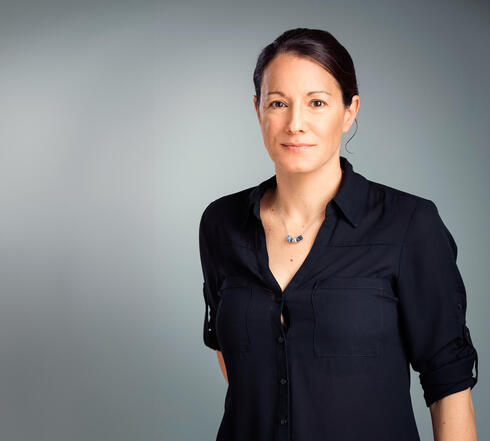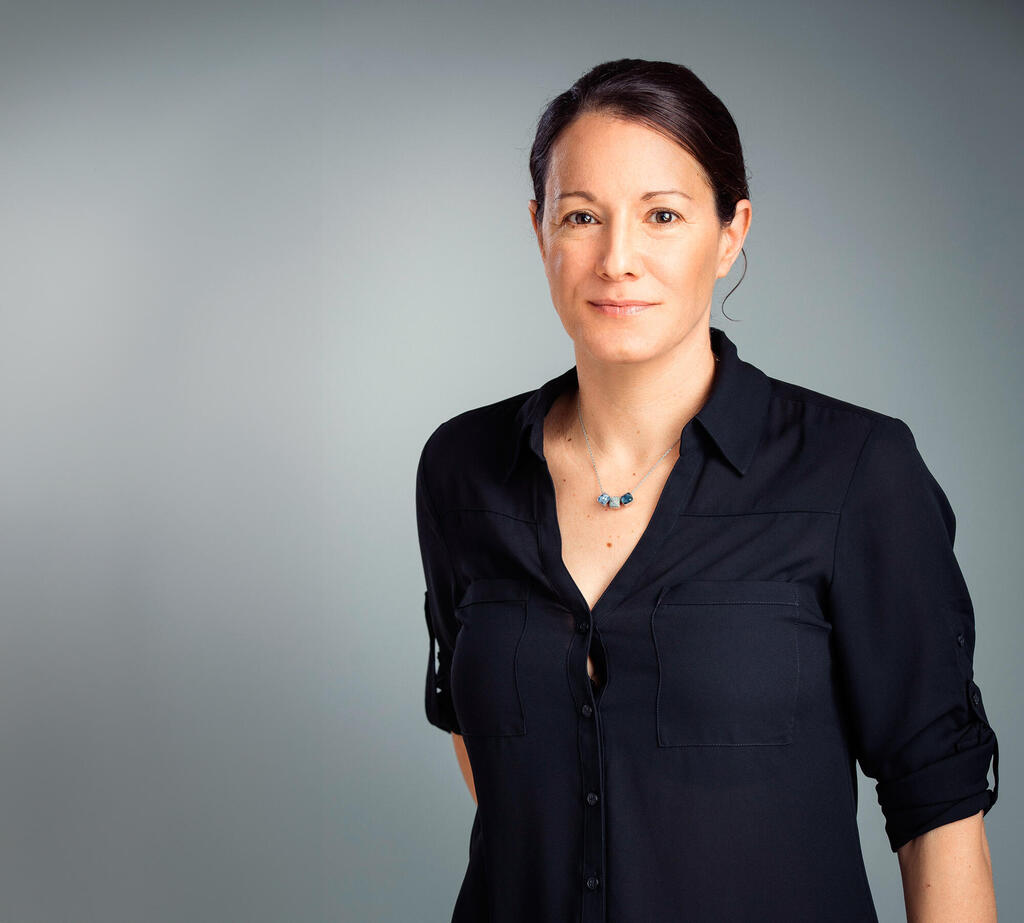
Where have all the female CEOs gone?
A global report by Deloitte shows that all over the world the proportion of women in senior management positions is declining. In Israel, the decline is particularly sharp. The proportion of female chairpersons is only 5.6% compared to almost 15% in 2018.
In Israel in 2024, it seems that we have regressed in terms of the representation of women in key positions. Since 2018, there has been a significant decrease in the proportion of women serving as CEOs or board chairpersons in public companies. While in 2018 women made up 8.1% of CEOs in the Israeli economy, by 2023 this figure had dropped to only 3.5%. The picture is also grim among board chairpersons: in 2018, women made up almost 15% of chairpersons, but by 2023 this figure had dropped to 5.6%, according to Deloitte's annual report on gender equality in management.
The report also shows that out of the 110 Israeli companies surveyed, there were 180 women members of the boards, despite the legal obligation in Israel for at least one female board member in a public company. The industries with the highest representation of women are the finance industry (27%), followed by retail companies (25.6%), and high-tech and traditional industries with 23.4% and 23.3%, respectively.
In countries with gender quotas for boards, such as Norway, France, and Italy, there has been a significant increase in the proportion of women serving on company boards. However, while quotas help increase the number of women on boards, they do not affect the number of women who serve as chairpersons. Globally, the proportion of women who head the board of directors of business companies is 8.4%. Among CEOs, the proportion is even lower at only 6%.
"Several years ago, we were among the leading countries in the integration of women on boards of directors and as CEOs. When the law in Israel was amended to require the presence of at least one director of the unrepresented gender (and of course in 99% of these cases, these were women), we jumped to leading positions globally. Since then, we have seen a sharp decline in female CEOs and stagnation in the representation on boards. Women CEOs now make up only 3.5% of management in traded companies - a sad figure for a country that considers itself progressive. Today, Israel is far from the leading countries that have reached gender parity. To correct the gap, an additional legislative amendment is needed," says Irena Ben Yakar, Partner, Chief Purpose Officer, and Head of ESG at Deloitte Israel.
Despite the legislation, the sharp drop in the rate of female CEOs in Israel raises questions about the effectiveness of the measures taken so far. Will gender quotas lead to significant change? Maybe. What can certainly contribute to improving gender equality is the private sector. According to the report and many other studies, companies with women in senior management positions are more successful in achieving economic goals and business results.
This presents an opportunity for companies, says Dr. Michal Tsur, Co-CEO and founder of Remepy, which operates in the field of digital health. Tsur, a serial entrepreneur and former partner of Naftali Bennett in Cyota and one of the founders of Kaltura, says she was very surprised by the data regarding the representation of women in Israel. "I think that, in general, we need to recruit good people who can lead change, and in my experience, women can play a very significant role in leading companies to where they want to go. It is proven that in terms of business results, more diverse companies are more successful, so there is a business interest in doing so," she says.
In the high-tech industry, the lack of women in key positions stems from the nature of female entrepreneurship. "Women are very entrepreneurial, but you have to look at where they harness their entrepreneurial powers. There is a lot of female entrepreneurship in social fields and the third sector, and women also manage those associations. This is something I have thought about quite a bit, and apparently, women are always looking to solve very big problems, which is not always possible when starting a business. It’s a bit of a paradox because there are no hidden billions of dollars. Big problems are known, so it's very difficult to raise money to solve a huge problem, and then you have to reduce it to something less interesting for women to tackle at the beginning. Most start-up companies that have developed and grown started with a small problem. Today, the largest supermarket in the world and on the Internet started by providing books in a very limited geographical area, and based on the infrastructure, they can provide services to other companies. I think that many times, women are pragmatists who want to solve big problems, so they go to places where they can dare to solve a big problem upfront.
In the field I just entered, drug development and digital health, there are many women both as entrepreneurs and CEOs, and the reason is that even at the beginning, even if you attack one disease or one indication, it brings a lot of value to humanity. So if you look at the worlds of biotech, there are many women, as entrepreneurs and also in very senior positions, as well as in the worlds of pharma," she says.
Shuly Galili, managing partner at the venture capital fund UpWest, says the phenomenon of a decrease in the number of female entrepreneurs and founders is not unique to Israel. "According to Carta's recently published data, it appears that there is a significant decrease in investment by venture capital funds in companies run by women. Also, the percentage of female founders in the US decreased - while in 2020 the percentage of female founders was 16%, in 2023 it was 13%. And not only female founders, but there has also been a decrease in the percentage of women in senior positions in US startups. In the field of development, the percentage of women decreased from 16% in 2019 to less than 9% in 2023. We see similar figures in the fields of data and sales."
Galili recognized the beginning of this process already during the pandemic period. "Since the pandemic, many women, including career women, have returned home. The value of the home and the responsibilities within it increased, and the burden fell more on women, which somewhat 'sedated' them in terms of entrepreneurship,'' she says. "Also, the uncertainty in the market in recent years meant that fewer women took risks and avoided leaving secure positions in companies to embark on entrepreneurial ventures. The ongoing global economic crisis also discourages women and men from transitioning to entrepreneurship. Not many people, especially women, will take such a risk during a time of crisis and uncertainty in the markets."
She adds that "many women were ejected from the industry." In the field of cyber, Israel has a lot of talent from the military. This is a field that generally attracts a lot of men, and that's where a lot of money has flowed in the last year. In the field of AI, it is still too early to say. Galili emphasizes, "We must see more women who are partners in the growth of artificial intelligence. This field is going to be significant, impacting many industries and shaping our reality. There are leading women in this field, but the lack of women is alarming. We must not let 50% of the population be excluded from its design, both in academia and industry."
Keren Nahir, CEO of ZenLife, was appointed to the position during the war after many years serving as VP of Marketing at large companies such as Adidas and H&M. "I managed complex processes, budgets, and large teams, yet I still didn't manage to break through the position of VP. The transition from VP to CEO was nearly impossible," she says. Precisely when she became independent, after four years as a business development consultant specializing in marketing and branding, one of her clients, a French foodtech company that developed a nutritional supplement eliminating the need to take vitamins and supplements via a pill, asked her to manage the company after she successfully drove sales.
"In most of the management teams during my career, I was the only woman. Usually, if they thought of promoting someone to CEO or identifying the next target, there was a preference for men. Both transitioning from VP to CEO and from marketing and sales to CEO positions is more difficult, with a preference often given to CFOs. Even when I was interviewed for CEO positions at small or medium-sized companies in retail, where I have extensive experience, I was always rejected because it would be my first CEO role. It's less difficult for men because they have less to prove. Being a senior manager requires being very assertive in your opinions while avoiding being labeled as a 'bitch' or appearing arrogant. Men are more readily accepted as CEOs," she says.
Hadar Zofiof Hacohen, CEO of the Union of Directors, believes the solution lies in regulation. "The results of the Deloitte report indicate a severe trend of gender inequality and low representation of women in Israel. The sharp decline in female board chairpersons is concerning and requires action.
About three years ago, the economy had the opportunity to adopt a policy of 35% women on boards without regulation as part of Forum 35 established by the Securities Authority. Unfortunately, self-regulation failed, and we see the results in the report. Not only has the situation not improved, but it has worsened. The legislator must immediately regulate female representation on boards to ensure progress towards true gender equality."
According to the Deloitte report, gender equality will only be achieved in 2111 if we continue progressing at the current rate. However, the consulting firm offers several recommendations to improve the situation, including: mandatory policies setting gender quotas on boards of directors and in senior management positions; raising awareness of the importance of gender equality and its economic benefits; investing in training and empowering women for senior positions; and ongoing monitoring of gender equality progress in organizations.

















